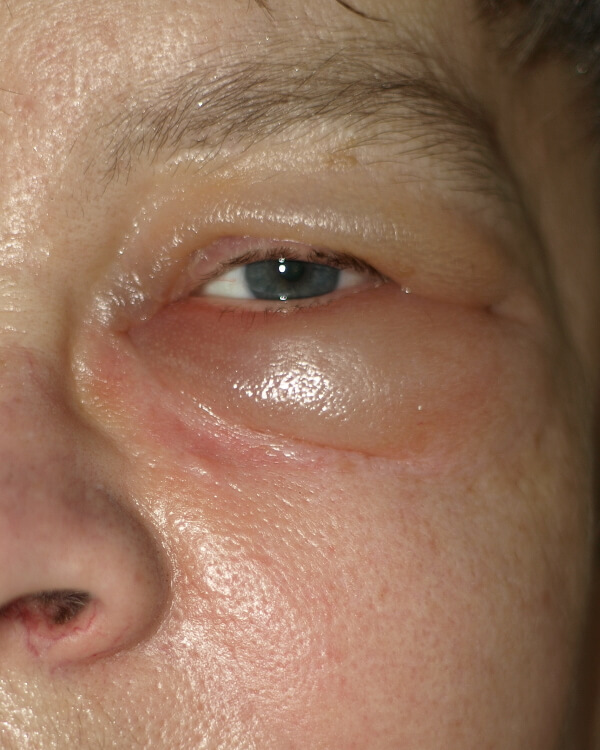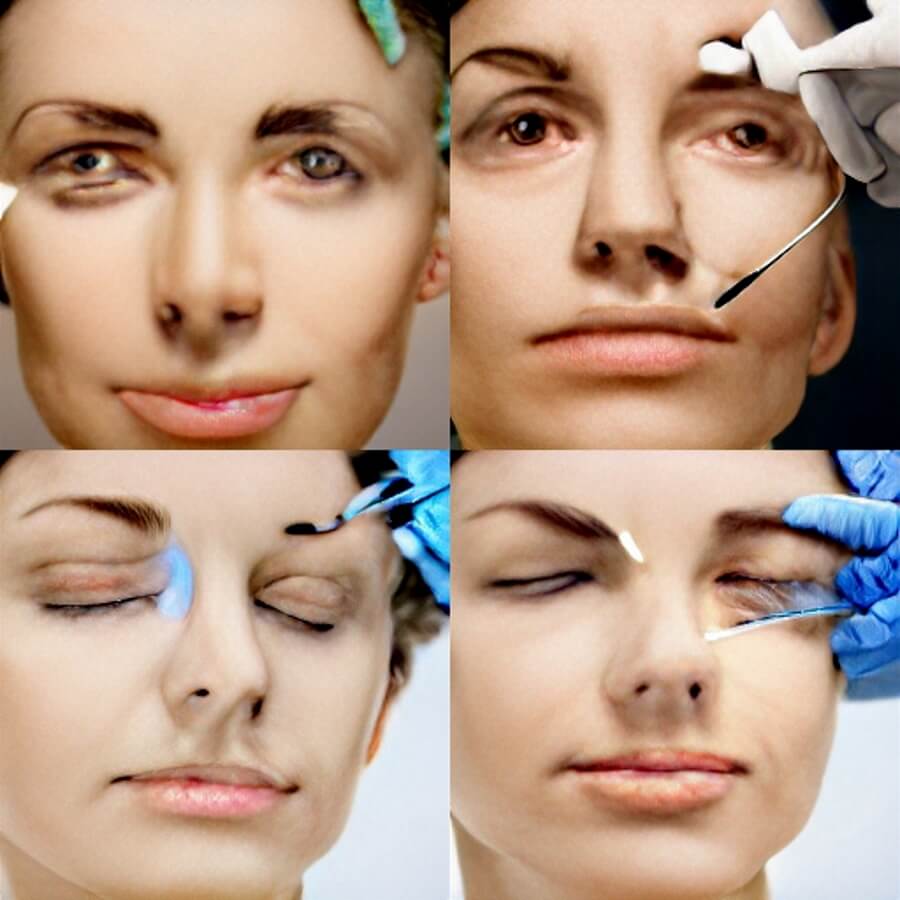After years of chasing the perfect face, I’ve finally found it. Or at least, I’ve found a way to temporarily achieve it. Botox has been a Godsend, giving me the smooth, wrinkle-free forehead I’ve always wanted. But there’s one downside to this new found perfection: puffy bags under my eyes. Find out more about botox under eyes gone wrong.
I could get rid of them with a little help from some trusty concealer, but that would require extra time and effort each morning, plus another splotch of makeup covering my skin. So instead, I’ve decided to embrace my puffy bags as a badge of honor. After all, they’re evidence that I’m doing something right when it comes to taking care of my skin!
Why do you get puffy bags under your eyes after botox?
It is not uncommon to experience minor swelling and bruising after botox injections. However, some people may also experience what is known as “botox fatigue.” Botox fatigue is a condition in which the muscles around the injection site become weaker and less responsive over time. This can lead to drooping of the eyelid or sagging of the brow, and can often be accompanied by puffy bags under the eyes.
6 Ways to fix Puffy eyes after Botox
Botox is one of the most popular cosmetic treatments available today. It’s a quick, minimally-invasive way to smooth out wrinkles and fine lines on the face. But, like any injection, there is a risk of side effects. One of the most common side effects is temporary puffiness under the eyes.
There are a few reasons why this can happen. First, the injection itself can cause some trauma to the delicate tissue introducing botox under eyes This can lead to swelling (see: malar bags). Second, Botox can sometimes spread beyond the injection site and affect nearby skin and muscles, which can also lead to puffiness under eyes.
Fortunately, there are a few things you can do to minimize the risk of puffy eyes after Botox and even reduce existing puffiness. Here are six tips:
- Apply cold compresses: Applying a cold compress to the injection site immediately after treatment can help reduce swelling and inflammation.
- Avoid rubbing or massaging the area: It’s important not to rub or massage the injection site because this can further spread the Botox and cause more puffiness.
- Sleep with your head elevated: For the first night after treatment, try to sleep with your head elevated on a pillow to help reduce swelling.
- Avoid salt: For the first few days after treatment, it’s best to avoid salt because it can cause fluid retention and make puffiness worse.
- Drink plenty of water: Staying hydrated is always important for overall health, but it’s especially important when you have any injectable treatments because it helps keep inflammation down.
- Talk to your doctor about anti-histamines: If you’re still struggling with puffiness under eyes after trying these tips, talk to your doctor about taking an over-the-counter anti-histamine like Benadryl or Zyrtec

How long will my eyes be puffy after Botox treatments?
The short answer is that it depends on the person. Everyone’s anatomy is different, which means that every person’s Botox recovery time will be different as well. The average recovery time for most people is two weeks, give or take a few days. However, there are always exceptions to the rule.
There are some people who only have mild puffiness for a day or two after their Botox treatment, and there are others who have more severe swelling that can last for a week or more. If you are concerned about your recovery time, or if you have any questions or concerns, be sure to talk to your doctor or healthcare provider.
Malar bags from Botox Gone wrong
It’s possible to have malar bags from Botox gone wrong. Under eye botox injections that are too low on the forehead can cause the muscles to push down on the lower eyelid, which gives the appearance of a puffy bag.
Whats a Malar bag? Malar bags are swollen bags which appear under your eyes. That is, beneath the lower eyelid and around your cheek. Malar bags are a common feature of ageing and can result in an older and more tired appearance.
Will botox injections blemish my skin?
There are a few potential side effects of Botox injections, but bruising is not generally one of them. In fact, many people report that their skin actually looks better after treatment, as the injections can help to smooth out wrinkles and give the face a more youthful appearance.
Of course, as with any medical procedure, there are some risks involved with Botox injections. The most common side effects include pain at the injection site, redness and swelling. These effects are usually temporary and should resolve within a few days. There is also a small risk of infection at the injection site.
If you are considering getting Botox injections, it is important to consult with a qualified medical professional to ensure that the treatment is right for you.
What are the pros and cons of getting a Botox under eyes injection?
Botox is a popular cosmetic treatment that can smooth out wrinkles and give you a more youthful appearance. But it’s not without its risks and drawbacks. Let’s take a closer look at the pros and cons of Botox.
PROS of Getting Botox Treatments:
- Botox can temporarily reduce the appearance of wrinkles.
- It is a relatively quick and easy procedure.
- There is minimal recovery time after treatment.
- Botox is FDA-approved and considered safe when administered by a qualified professional.
- Results are typically temporary, so you can decide if you like the results before committing to long-term treatment.
Cons of getting botox treatments:
- The possibility of side effects, such as swelling, bruising, and headaches
- The potential for allergic reactions
- Skin irritations, lesions in your skin
- The risk of developing resistance to botox over time
Will my eyes or skin stay puffy after Botox treatments?
It is common for patients to experience slight puffiness in the treated area directly following their Botox injection. However, the effects of Botox are not permanent, and the swelling should subside within a few days. In rare cases, patients may experience more significant swelling that lasts for a longer period of time. If you experience any unusual side effects after your Botox treatment, be sure to contact your doctor right away.
Final Thoughts
If you’re considering getting Botox, or have recently gotten it, you may have questions about potential side effects. One common side effect is puffy bags under the eyes. But don’t worry, this is usually only temporary and will go away on its own. In the meantime, there are a few things you can do to help reduce the appearance of bags under your eyes.
First, try sleeping with your head elevated on pillows. This will help drain any fluid that may be causing the puffiness. You can also put a cool compress on your eyes for a few minutes each day. And lastly, be sure to drink plenty of water and eat a healthy diet. These things will help your body recover from the treatment and reduce any swelling.
